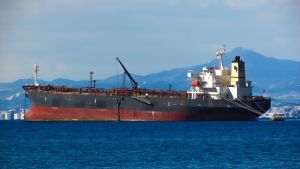Greenpeace warned Norway, in a report, about the "irreversible" consequences of mining projects on the bottom of the sea, an activity that, according to the organization, will affect the entire marine ecosystem.
Despite objections from scientists, NGOs and states, Norway plans to award its first exploration licenses in 2025 and could become one of the first countries in the world to mine the seabed. "Norway's deep-water mining projects in the Arctic will cause irreversible damage to biodiversity," objected Greenpeace, publishing a report titled "Underwater Mining in the Arctic: Living Treasures at Risk." According to Greenpeace, this activity poses an additional threat to a little-known ecosystem already weakened by climate warming. Among the dangers, the report lists especially the direct destruction of habitat and organisms on the seabed, sound and light pollution, the risk of chemical leaks from equipment, the accidental movement of species. "Mining will cause permanent damage to these ecosystems and it will be impossible to assess the full extent of these effects, let alone control them," said Kirsten Young, who heads Greenpeace's research department.
"Norway's plans not only directly threaten species and habitats on the bottom of the seas, but also the entire marine ecosystem, from the smallest plankton to large whales," added Young. As far as they are concerned, the Norwegian authorities highlight the importance of not depending on countries like China for the supply of essential minerals for the green transition and assure that prospecting will allow obtaining knowledge that is currently lacking. "The global transition towards a low-carbon society will require enormous amounts of minerals and metals," said Astrid Bergmal, Secretary of State in the Ministry of Petroleum and Energy, in an email to AFP. Some of these minerals are part of batteries, wind turbines, computers, mobile phones. Norway states that any eventual exploitation will be conditioned by the application of "responsible and sustainable' methods and that the first projects will have to be approved in advance by the government and parliament. Oslo aims to open an area of 281,000 square km in the Norwegian Sea and the Greenland Sea to exploration, aiming to award the first licenses in the first half of 2025.















































